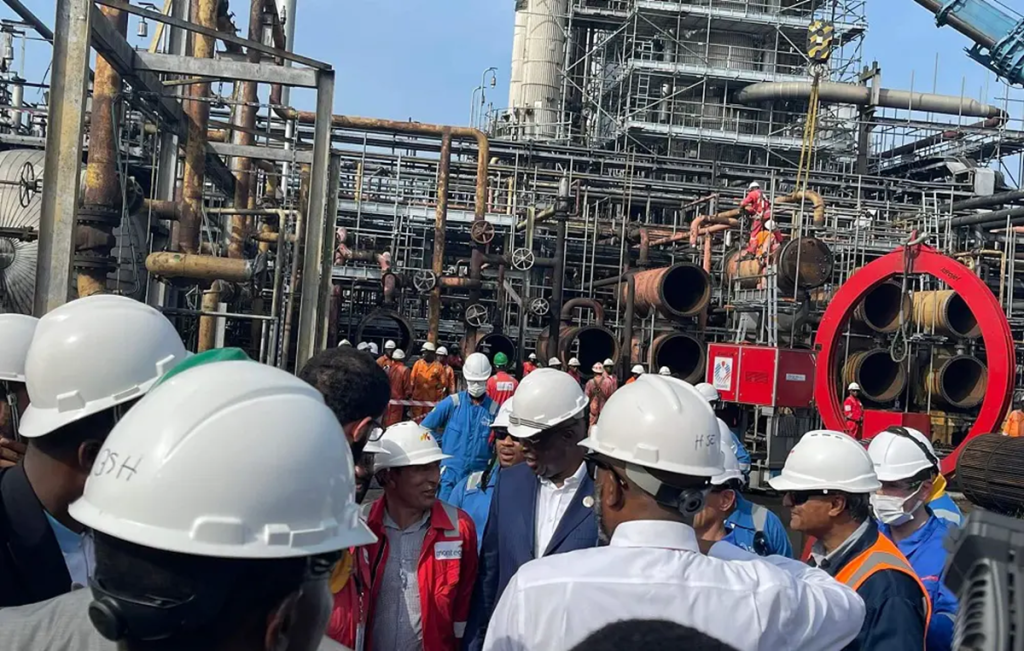The Nigerian National Petroleum Company Limited (NNPCL) has clarified that it is the older unit of the Port Harcourt Refinery, with a capacity of 60,000 barrels per day, that has been revived, not the entire refinery.
The Port Harcourt Refinery complex consists of two operational units, established in 1965 and 1989, with a combined installed capacity of 210,000 barrels per day. The older unit, now operating at 70% of its capacity, produces significant volumes of petroleum products daily.
The newer unit, with a capacity of 150,000 barrels per day, is expected to be completed next year, according to NNPCL.
Currently, the refinery produces the following outputs daily: 1.4 million litres of Premium Motor Spirit (PMS or petrol), 900,000 litres of Kerosene, 1.5 million litres of Automotive Gas Oil (AGO or diesel), and 2.1 million litres of Low Pour Fuel Oil (LPFO), along with additional volumes of Liquefied Petroleum Gas (LPG). These products are blended to meet the required specifications.

To meet gasoline specifications, the refinery blends Straight-Run Gasoline with Crack C5, a component sourced from Indorama Petrochemicals, as stated by NNPC’s spokesman, Olufemi Soneye.
This marks a major milestone in the refinery’s recovery following years of operational setbacks. NNPCL added that the blending process is standard practice globally, as no single refinery unit can produce fully compliant gasoline without additional processing.
The company revealed efforts are ongoing to increase the refinery’s capacity from 70% to 90%, and substantial progress is being made on the new Port Harcourt Refinery, which is expected to begin operations soon.
NNPCL dismissed claims by some individuals who alleged that the refinery was not operational, describing such statements as “unfounded.” The oil company emphasised the need to focus on the achievements under the leadership of President Bola Tinubu, who has made revitalising the nation’s energy sector a priority.
NNPC urged Nigerians to support its ongoing efforts to transform the energy sector and avoid undermining progress with baseless criticism. The restart of the Port Harcourt Refinery represents a significant step towards Nigeria’s energy self-sufficiency, promising improved fuel availability and reduced dependence on imports.


